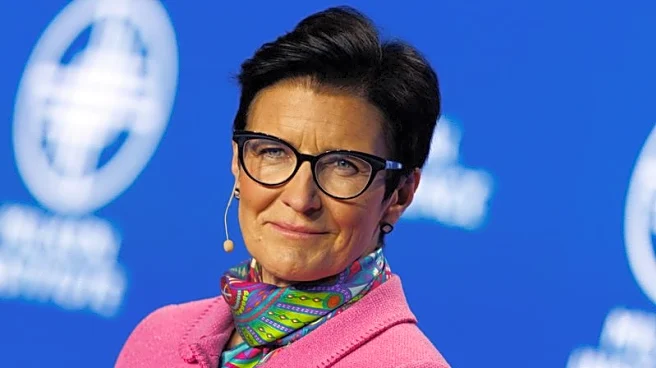What is the story about?
What's Happening?
Destiny 2's latest expansion, The Edge of Fate, introduces a new character named Lodi, who is distinct from previous characters in the game. Unlike Guardians, Lodi is a man out of time, originating from the 1960s as part of the U.S. government's Department of External Observation. This expansion takes players to Kepler, a new planetoid, and focuses on the Nine, powerful interdimensional entities. The narrative director, Alison Lührs, explains that the expansion challenges Destiny's core belief that 'Guardians make their own fate.' The expansion aims to engage players with themes of fate, free will, and identity, while setting the stage for the Fate Saga's long-term storytelling.
Why It's Important?
The introduction of Lodi and the focus on the Nine marks a significant shift in Destiny 2's storytelling approach. By incorporating elements from the past, the expansion enriches the game's lore and offers players a fresh perspective. This development could attract new players and retain existing ones by deepening the narrative complexity. The expansion's emphasis on character-driven stories aligns with player interests, potentially enhancing engagement and investment in the game's universe. The strategic storytelling approach may also influence future expansions, ensuring a cohesive and adaptable narrative structure.
What's Next?
The expansion sets up long-term story threads, with Renegades continuing the Fate Saga. Players can expect further exploration of the Nine's actions and the consequences of III's death. Bungie plans to maintain focus on central characters while integrating their choices into high-stakes narratives. The storytelling approach will balance character development with broader world impacts, ensuring a rich and engaging experience for players. As the saga unfolds, players will likely encounter new characters and deeper interactions with familiar ones, shaping the game's future direction.
Beyond the Headlines
The expansion's introduction of time travel elements and historical references, such as the Kennedy Assassination, adds layers of intrigue and speculation. The Department of External Observation, likened to NASA meets Men in Black, offers a unique narrative angle, blending science fiction with historical context. This approach may inspire discussions on the ethical implications of time travel and extraterrestrial interactions. The expansion's narrative choices reflect a broader trend in gaming towards complex, interconnected storytelling, potentially influencing industry standards.
















